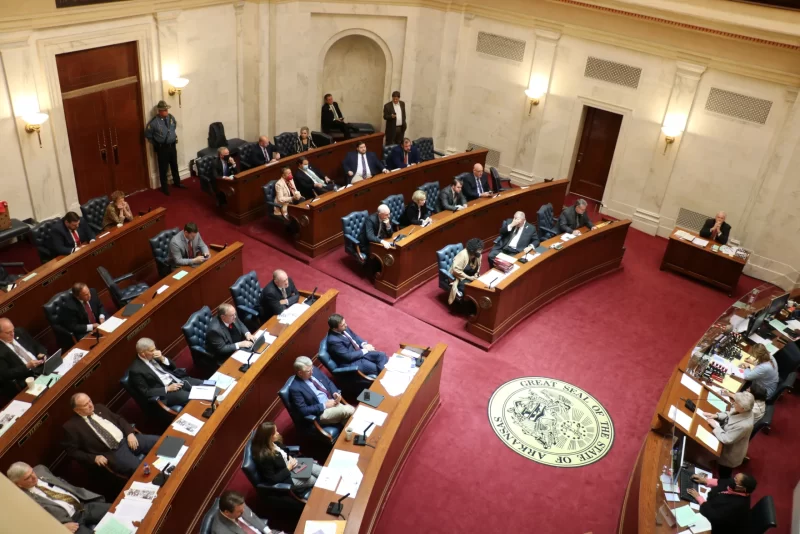The Arkansas Senate has recently passed two significant bills aimed at regulating cryptocurrency mining within the state, marking a pivotal step towards more controlled and structured oversight of this burgeoning industry. Senate Bills 78 and 79, both of which received strong support in the Senate, are now progressing to the House for further consideration.
Details of the New Legislation
Senate Bill 78, introduced by State Senator Joshua Bryant (R-District 32), focuses on setting clear boundaries for crypto mining operations. This bill specifically prohibits crypto mining facilities from being owned by certain foreign entities and empowers local governments to enact ordinances that regulate these operations. Senator Bryant emphasized the importance of these regulations in ensuring that crypto mining activities do not disrupt local communities or circumvent state laws.
Senate Bill 79, spearheaded by State Senator Missy Irvin (R-District 24), assigns regulatory authority over crypto mining to the Arkansas Gas and Oil Commission, part of the state’s Department of Energy and Environment. This move is intended to ensure that crypto mining activities align with the state’s broader energy and environmental policies.
Crypto Mining in the U.S. Context
The crypto mining sector in the U.S. has seen substantial growth due to several factors:
- Technology Adoption: The U.S. continues to lead in technological advancements, facilitating rapid development within the crypto mining industry.
- Economic Factors: High potential returns have attracted both individuals and institutional investors to the sector.
- Favorable Regulation: Certain U.S. states have implemented crypto-friendly policies that support the industry’s growth.
- Energy Resources: The U.S. boasts a wealth of energy resources, increasingly leveraged for sustainable and cost-effective crypto mining operations.
The passage of these bills in Arkansas reflects a growing trend of states taking active steps to manage the expansion of cryptocurrency mining operations. This regulatory push is partly driven by the need to integrate these operations within local and state energy frameworks without compromising community standards or environmental integrity.
As Arkansas moves to implement more stringent controls over cryptocurrency mining, it sets an example for how states can balance economic growth with regulatory oversight. The outcome of these bills could influence future legislative approaches in other states as the U.S. seeks to optimize the benefits of the crypto mining boom while mitigating its potential downsides.
